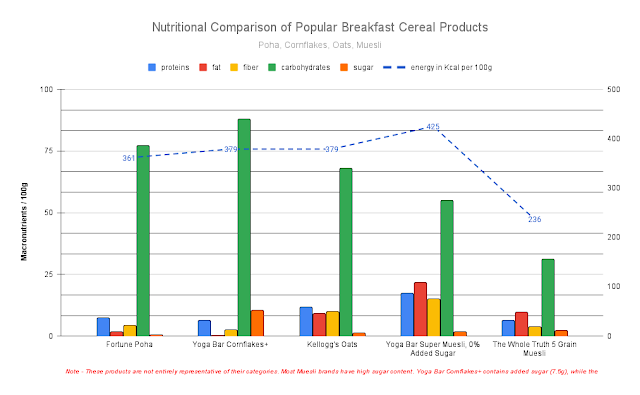Myths of Indian Cooking - Debunked
Paraphrased notes from the chat between Dr Pal & Krish Ashok, author of Masala Labs (2020, 280 pages) -
Convenience is a crucial factor in maintaining a healthy diet and making sustainable food choices.
Freezing food significantly slows down biological activity, preserving most nutrients. The loss of nutrients primarily occurs during cooking, not freezing. Frozen fruits and vegetables, in fact, often retain more nutrients than fresh ones that are left out for days.
Reheating food primarily affects water-soluble vitamins, like Vitamin C and B vitamins, but most other nutrients, including proteins, fats, and carbohydrates, remain intact. The small loss of nutrients from reheating is not significant enough to outweigh the benefits of home-cooked meals compared to calorie-dense restaurant food.
Microwaves heat food by targeting water molecules, and they don't expose food to excessive heat that can destroy nutrients. Compared to stove reheating, microwaving preserves more nutrients and ensures even cooking, avoiding burning.
Consistent and mindful eating habits, including meal prepping and planning, are key to maintaining a healthy diet.
Fruits, especially bananas, emit ethylene gas, which accelerates the ripening of vegetables. To maintain freshness, fruits and vegetables should be stored apart from each other in the fridge. Preserve cut vegetables in airtight boxes but for herbs use a container with a few holes
Eating unripe mangoes is not a "sad life." Unripe mangoes can be less sweet and more nutritious, as they have not yet reached their peak ripeness. A raw mango is generally more healthier in micronutrients than a fully ripe mango which has more fructose ("Death by Fructose", a playful nod to indulgent desserts like "Death by Chocolate")
Raw milk can contain dangerous bacteria which pasteurization eliminates. Drinking pasteurized milk is far safer, and any minimal nutrient loss during pasteurization is outweighed by the health benefits of bacterial elimination.
Basic food processing like pasteurization (for milk) and removing husks from rice or wheat is essential. The problem lies with ultra-processed foods that combine unnatural ingredients, but not all processing is bad.
While ultra-processed foods like chicken nuggets contain unnatural combinations of protein, fat, and carbs, it's the overconsumption that's harmful, not the occasional indulgence. The real issue is the nutrient imbalance in such foods, which often include combinations of fats, proteins, and carbs that don’t naturally exist in whole foods. Moderation and balance in your diet are key.
Meat can safely be stored in the fridge for a day or two, and for longer periods in the freezer. To extend the shelf life, marinating meat with acidic ingredients like lime juice or yogurt adds protection by preventing bacterial growth. Acidic marinades not only enhance flavor but also help preserve meat by creating an inhospitable environment for bacteria.
Cooking with non-stick cookware reduces the need for oil, which helps in controlling calorie intake. Stainless steel is great for certain dishes, but it often requires more oil and is harder to clean, which can be inconvenient. While the manufacturing of non-stick coatings (like Teflon) involves certain chemicals, there is no evidence that these chemicals pose a risk to consumers during normal use. The benefit of using less oil in non-stick cookware actually makes it a healthier option for cooking, especially for items like eggs.



Comments
Post a Comment